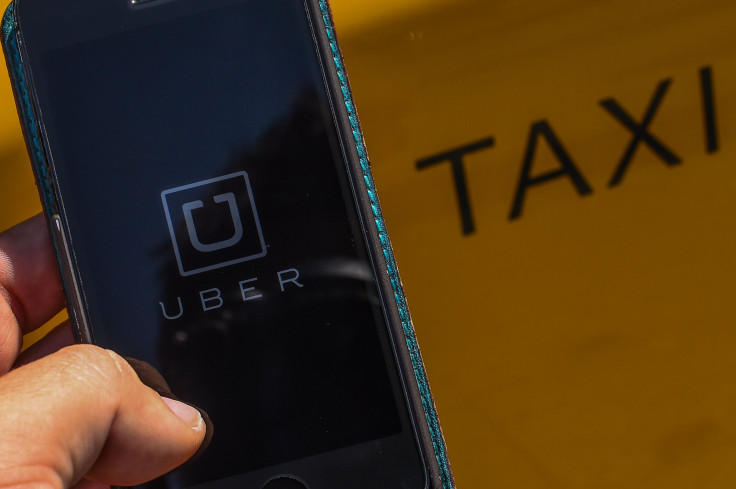‘Uber-Lyft Ordinance’: Ride-Booking Companies Have Spent $8.1M To Ban Fingerprinting Drivers In Texas State Capital

Voters in Austin, Texas, will go to the polls Saturday to determine if online ride-hailing service providers Uber and Lyft must require their self-employed drivers to be fingerprinted as part of their criminal background checks, and the rivals in the industry have spent handsomely in their campaign to overturn a local ordinance requiring this and other measures.
Anyone in living in the state’s capital and fourth-largest city has been inundated with an escalating barrage of billboards, mailers and media ads from Ridesharing Works for Austin, a political action committee funded by the two companies.
Officially called Prop 1 and popularly called the Uber-Lyft ordinance, the referendum would overturn the city’s law and establish the lower-cost name-based criminal background checks. According to a recent report from the Austin-American Statesman, the two companies have spent at least $8.1 million to overturn the ordinance, including millions of dollars spent on advertising and field operations and $50,000 to former Austin Mayor Lee Leffingwell to act as a consultant for a few weeks in the runup to the vote.
The amount of money being spent reflects Uber’s and Lyft’s efforts to defeat a local ordinance as a message to other cities mulling their own regulations. “They’re operating at a much bigger scale than Prop 1 in Austin,” Jim Henson, director of the Texas Politics Project at the University of Texas, told the Statesman.
According to Texas Monthly, the money is seven times the most expensive municipal election in Austin’s history and 81 times more than Prop 1 opponents have been able to spend to defeat the measure.
There is no data supporting the premise that drivers for these companies are more likely to commit crimes than conventional taxi drivers, because police departments generally don’t track crimes specifically committed in taxis or liberty cars. But several high-profile incidents involving Uber drivers have raised the profile of the issue.
Jason Dalton, 45, has been accused of murdering six people while working as an Uber driver in Michigan. Boston Uber driver Alejandro Done, 47, was sentenced last year for raping a female passenger. Similar sexual assault cases have been reported in India, too. A comprehensive list of allegations and convictions is kept by Who’s Driving You?, an outspoken critic of ride-hailing services.
For its part, Uber says its system, which uses a private company to conduct name-based background checks in the U.S., is standard, comprehensive and at least as safe as those used by taxi companies.
“Unlike the taxi industry, our background checking process and standards are consistent across the United States and often more rigorous than what is required to become a taxi driver,” Uber spokesman Taylor Bennett told the Atlantic last year.
Ride-hailing services are controversial because they put the burden of health insurance and taxes on their independent drivers while at the same time controlling how much these drivers can earn, like a traditional boss.
In January, the California Labor Commission ruled that a former Uber driver was an employee, not an independent contractor, allowing her to claim lost wages and expense reimbursements. But the ruling was specific to that case alone and not a sweeping judicial interpretation to the way ride-hailing drivers are currently classified. Last month, Uber agreed to pay up to $100 million to settle a class-action lawsuit over the classification of its drivers in California.
Uber recently dismissed the idea of offering a tip button on its app, claiming customers would have a racial bias against black drivers. The company says tips are not expected or required.
© Copyright IBTimes 2024. All rights reserved.






















